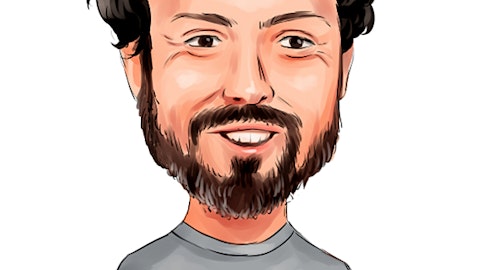Apple Inc. (NASDAQ:AAPL) has not only been in the courtroom battling Samsung Electronics Corporation, but it has also been working on a licensing-agreement case against Motorola Mobility, having sued the company in spring 2011 over what it claimed were excessive royalties for patents that covered video streaming and Wi-Fi technology. The suit was brought a year before Motorola Mobility was purchased by Google Inc. (NASDAQ:GOOG), but this is being seen as a win for Apple over Google in the ongoing tech war.
Apple Inc. (NASDAQ:AAPL) received a series of summary judgements in its favor in its case against Motorola Mobility, which wanted to collect 2.25 percent of all net sales of iOS products that use Motorola Mobility’s standard-essential patents. Apple contended that those patents qualify under a FRAND (fair, reasonable and non-discriminatory) agreement and thus the royalties were too high for such industry-standard patents. The judge in this case, Barbara Crabb of the U.S. District Court for western Wisconsin, ruled in Apple’s favor that, indeed, these patents do qualify under FRAND licensing agreements and should be considered as such at trial.
Google has intended to monetize Motorola Mobility’s portfolio of standard-essential patents – and it still may – but this ruling is another obstacle in that course for Google. Europe and U.S. trade regulators are also reported to be investigating Google on FRAND abuse charges with other patent-licensing agreements. This is the second loss for Motorola in these disputes; the company lost a similar ruling in a dispute with Microsoft Corporation (NASDAQ:MSFT) earlier this year.
Apple Inc. (NASDAQ:AAPL) tussled with Motorola before, as a case in Germany forced Apple to remove some of its older-model iPhones from its online store in that country. Apple, however, did lose a couple of other motions in this current case – Judge Crabb ruled in favor of Motorola on an antitrust claim, saying that Apple could not prove harm; and sided with Motorola on Apple’s claim that its relationship with chipmaker QUALCOMM Inc. (NASDAQ:QCOM) has been interfered with, again because Apple could not prove harm.
This battle is not over, but certainly now that Motorola Mobility has Google doing much of the legal work behind it when the trial begins in early November, Apple Inc. (NASDAQ:AAPL) will once again be facing off with one of its bitter smartphone rivals for patent supremacy in a intensely competitive market space. No doubt many hedge funds will be watching this closely, including Dan Loeb’s Third Point, which initiated a $217 million position in Apple during the first quarter of 2012 (see where that stands in this multi-billion-dollar portfolio).






